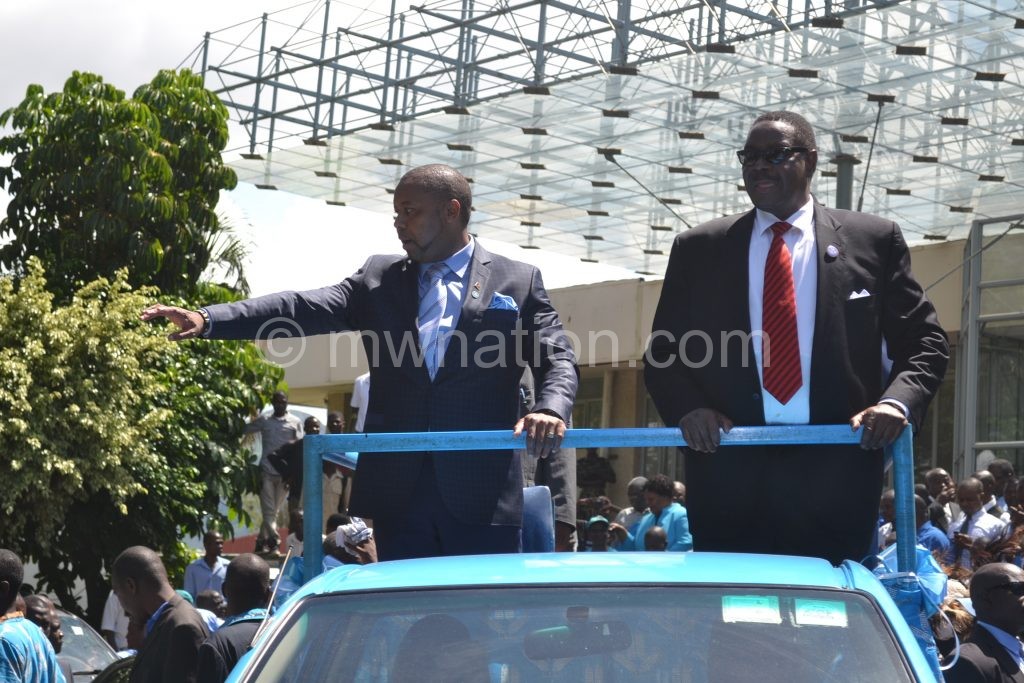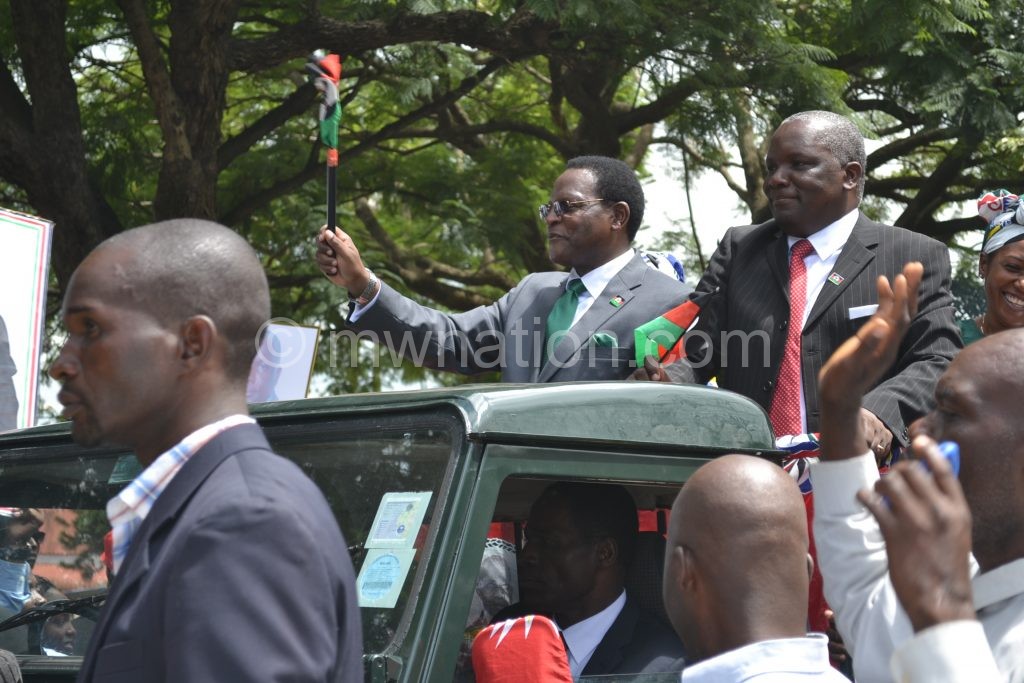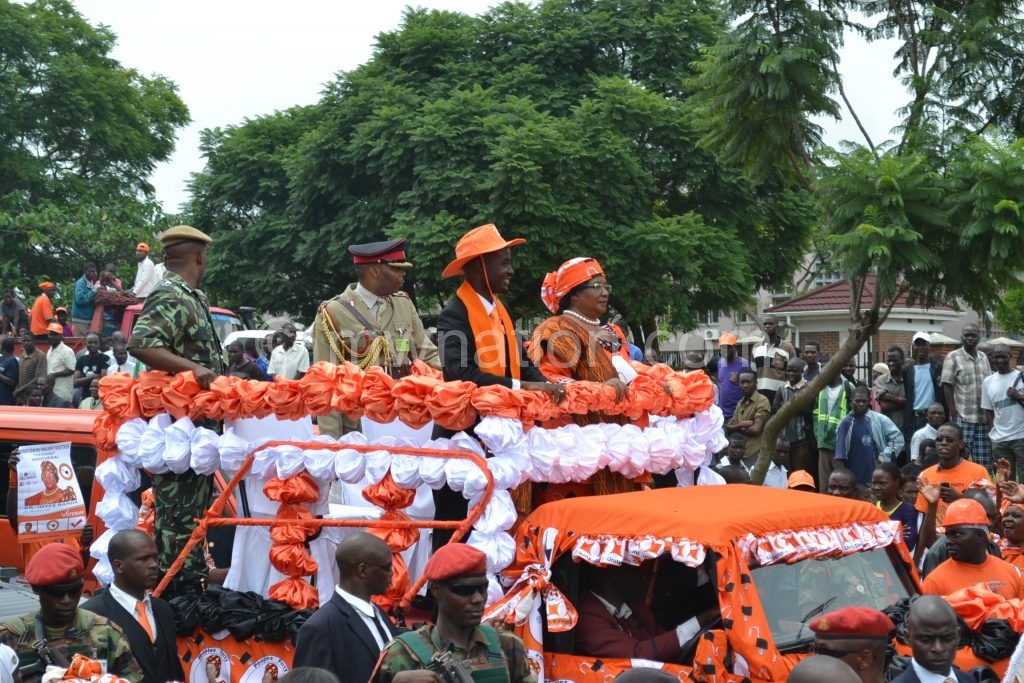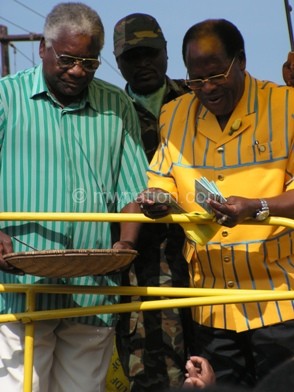Party finances under spotlight
With more than 10 years elapsing without a clear direction on the K1.7 billion corruption case involving former president Bakili Muluzi, some experts have argued that the absence of a robust political party financing legislation could be putting prosecutors of such cases in a bind.
But others say the issue may not be about political party funding legislation. Rather, they argue, it is the politicisation of high-level corruption cases that is at fault.

At the core of the debate is whether, based on the current legal framework, there is wrongdoing in getting ‘political donations’ from both internal and external sources.
It is a question that former High Court of Malawi judge the late Joseph Manyungwa tried to address in his 2005 ruling involving proprietors of Keza Office Park in Blantyre—Atupele Properties Limited in which Muluzi has a majority interest—and the Anti-Corruption Bureau (ACB).
Atupele Properties wanted the court to vacate an ACB restriction order stopping the sale of the property because the anti-graft body claimed that the development of Keza Office Park was funded in part by money they alleged Muluzi obtained corruptly by diverting funds from countries such as the Kingdom of Morocco, Libya and Taiwan, which they say were meant for government, into his personal bank accounts.
In his judgement, Manyungwa, in the first place, declared that Muluzi was not a public officer, adding the donations were made to him (Muluzi) in his personal capacity and there is no law that precludes one from receiving donations.
Currently, Malawi uses the three-paged 1993 Political Party Registration Act, which only provides for the registration of political parties, but does not cover their financing.
However, the Centre for Multi-Party Democracy (CMD) has spearheaded the development of a draft Political Parties Bill which, on financing, will, among other things, compel parties to declare any monetary value of at least K1 million from an individual donor and of at least K2 million from an organisation to the newly-created office of the Registrar of Political Parties.

In the ruling, Manyungwa stated that it was difficult to find that there was wrongdoing on Muluzi’s part when he got the money from foreign governments and other well-wishers.
“If the monies were not meant for him, one wonders why the cheques were made in his name. In any case, the alleged donors have not complained that the money meant for the Government of Malawi ended up in Dr Bakili Muluzi’s account.
“If the said donors had complained, or the Bureau [ACB] had shown that the monies were meant for Malawi Government and not Dr Bakili Muluzi in his personal capacity, I would have a different view,” rulMalawi ed the judge. The disposal of Keza proceeded.
Muluzi is currently in court accused of misappropriating the K1.7 billion from known and unknown sources both locally and internationally.
He denies the charges, arguing that one cannot divert money that is in the first place meant for him as demonstrated by the fact that the cheques were in his personal capacity.
It is on the back of the seemingly legal hole on political funding—as seen from the Manyungwa ruling—that have prompted University of Malawi’s Chancellor College-based political analyst Michael Jana and researcher on political party financing Augustine Magolowondo to warn that the absence of a robust political financing legislation has serious implications on a wide range of governance issues, including the much touted fight against corruption.
On his part, Jana underlines that, as it stands, political party financing in Malawi remains an area of unfairness, corruption, patronage and illegitimate policy influences—defeating the whole purpose of political parties in a democracy.
Linking the absence of such a law to the fight against corruption, Magolowondo said going by the principle of ‘he who pays the piper calls the tune’, it is important to know that there is always a move behind any support that is provided.
Such moves, he noted, may not always be noble.

Some are meant to be used as a carrot to exert influence on certain key decisions such as award of contracts, he said.
He added that the absence of such a law provides a conducive environment for such illicit networks to flourish as those involved can afford to remain ‘anonymous’ and yet ‘influential’.
“If parties do not disclose their sources of funding, it becomes difficult to fight both money laundering and outright corruption as it becomes rather hard to prove such cases for lack of hard evidence,” he said.
However, despite Magolowondo’s arguments and Manyungwa’s insights, a legal expert has warned against looking at the political party financing legislation as a magical wand in fighting politically-oriented corrupt practices.
Chancellor College associate professor of law Edge Kanyongolo says although a political party financing law would help investigators and prosecutors, its absence cannot be an excuse for ineffectiveness.
He said the current legal framework gives agencies such as the ACB, the Financial Intelligent Unit (FIU), the Reserve Bank of Malawi (RBM) and the Malawi Police Service (MPS) sufficient legal powers to enable them to deal with illicit financial flows, if only they can muster the courage to act independently and impartially.
Specifically zeroing in on the ACB, Kanyongolo challenged that the graft-fighting body, under the Corrupt Practices Act, has enough power to enable it to compel disclosure of the same amount of information it would access under political financing legislation.
In other words, he added, under the current Corrupt Practices Act, the ACB can ensure that ‘politicians are legally compelled to disclose their sources of political financing’.
Building on Kanyongolo’s argument, Jana thinks the autonomy of ACB is critical in this fight.
He declared that the ACB has been reduced to a political dog used to bite political opponents and lick political allies.
Asked Jana: “How many DPP cadres, for instance, have recently been spared of arrest even though they are suspected of being involved in corrupt practices?”
In an interview yesterday, ACB director general Lucas Kondowe restated his position that ACB is an independent institution that makes independent decisions although at times it must consult other offices to reach decisions.
At the weekend, the Malawi Law Society (MLS) also backed Kondowe on ACB’s independence, particularly as provided for by the Corrupt Practices Act.

But Kondowe conceded that having a guiding law on political party funding would help the country to better fight corruption, including at the highest political levels.
Both Kanyongolo and Jana underscored the importance of having a robust legislation on political party financing.
Kanyongolo thinks the biggest dividend from political financing legislation is not the capacitation of investigative agencies.
Rather, he explains, it is the empowerment of the citizenry (and the media) by improving their access to public information and thus their knowledge of the “strings” behind the political parties.
He added that such a law would, again, improve intra-party democracy by empowering members with knowledge of the amount and sources of their funding and the conditions attached by such “donors”/”well-wishers”.
Further, the law, he said, would deter political parties from obtaining funding from “dubious” sources in the first place, since they will know that this will become a matter of public knowledge.
For these reasons, added Kanyongolo, the Legislature must urgently enact legislation that compels all political parties to disclose all their sources of funding.
Any reluctance to do so will confirm that they lack either the knowledge of, or commitment to, the constitution’s underlying values of transparency and accountability, he said.
Such a bill, championed by CMD, was already submitted to the Ministry of Justice and Constitutional Affairs in January this year.
Five political parties—the governing Democratic Progressive Party (DPP), United Democratic Front (UDF), Alliance for Democracy (Aford), People’s Party (PP) and Malawi Congress Party (MCP)—have, so far, endorsed the bill.
In a letter dated January 22 2016 addressed to the Solicitor General and duly signed by the parties’ secretaries general, the parties encouraged the Ministry of Justice to proceed with its “internal processes that will lead to the tabling of the bill for debate in Parliament”.
The K1.7 billion Muluzi case—which could prove to be a landmark political party financing case—has stagnated due to suspensions and adjournments sometimes attributed to illness of the accused, countless objections from the defense team bordering on judicial review applications, instabilities in the prosecution team and requests for reviews of the case by the ACB.
The prosecution, The Nation understands, has up to this Friday to tell the court what its position is regarding the case.
On the slow progress of the case, Kanyongolo had this to say: “The case has progressed so slowly that it undermines the confidence of the public in the efficiency and effectiveness of the country’s justice system. This means both the State and the accused have been denied justice because justice delayed is justice denied”.
Jana put a political touch to his thoughts: “Overall, I think the case has turned out to be a political circus used by those in power to either reward Muluzi and the UDF for siding with the government, or punish him for opposing government”.





